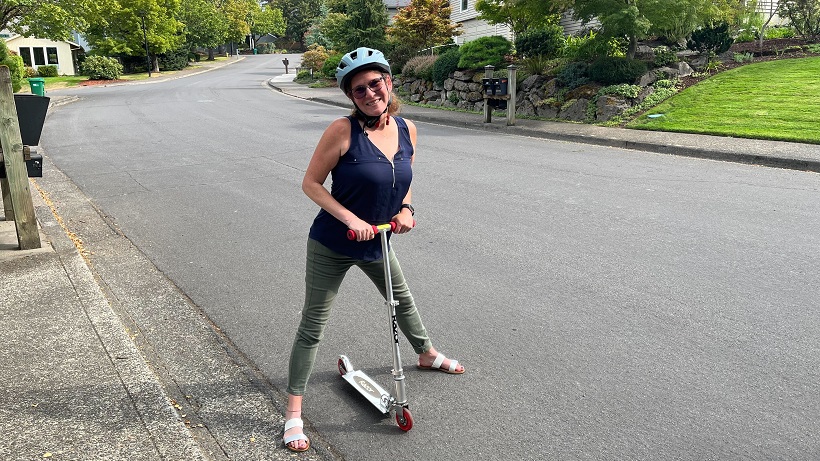The privilege and good fortune of a full life on earth carries with it countless inescapable lessons of humility along the way. Whether it’s the result of saying, “Watch this!” as a child or being let go from a job you’ve held for years, humans don’t have to learn to be humble. It’s forced on us.

This is also the reality we’ve learned after two and a half years of navigating Covid. You can wear a mask, get vaccinated, practice good hygiene, and keep your distance from others, and still get Covid. It’s clear these preventative measures help slow the spread and lessen the severity, but you can’t convince Covid that you’re too good or too proud to be susceptible.
The Torah, naturally, suggests that this isn’t the first time humanity has encountered a reminder like this, and it surely won’t be the last. This week we read Parshat Nitzavim, which teaches us this lesson, albeit in a slightly cryptic way.
This Torah portion is primarily about establishing ourselves as a people and the warnings against becoming complacent. It begins with God telling the Israelites about the covenant they’re making together and how binding it is. Nitzavim is typically translated as “stand firmly,” which makes sense as one of the final moments of the Israelite nation receiving direct guidance from God and from Moses before they enter the Land of Israel.
While much of the parshah talks about what not to do, one verse focuses on the intention behind those transgressions. Deuteronomy 29:18 states: “When hearing the words of these sanctions, such a one may imagine a special immunity, thinking, ‘I shall be safe, though I follow my own willful heart’—to the utter ruin of moist and dry alike.”
It’s not entirely obvious what is meant by “moist and dry alike,” but the message is that no one is immune, so to speak. Overconfidence and arrogance – these are the characteristics that make us believe that our actions somehow don’t affect the rest of the community. In reality, though, what we do sends ripples into the world, branching out like a contagion.
There’s a quote attributed to the 19th-century Jewish scholar Rabbi Bunim of P’shiskha that combines two opposing Jewish teachings. “Everyone must have two pockets, with a note in each pocket; one should read: ‘For my sake was the world created,’ and the other should read: ‘I am but dust and ashes.’”
We must see value and worth in ourselves, and at the same time acknowledge the relative insignificance of this ephemeral gift we’re given. That just gives us all the more urgency to make the most of the time we have, and there’s no time like the new year to get started.



